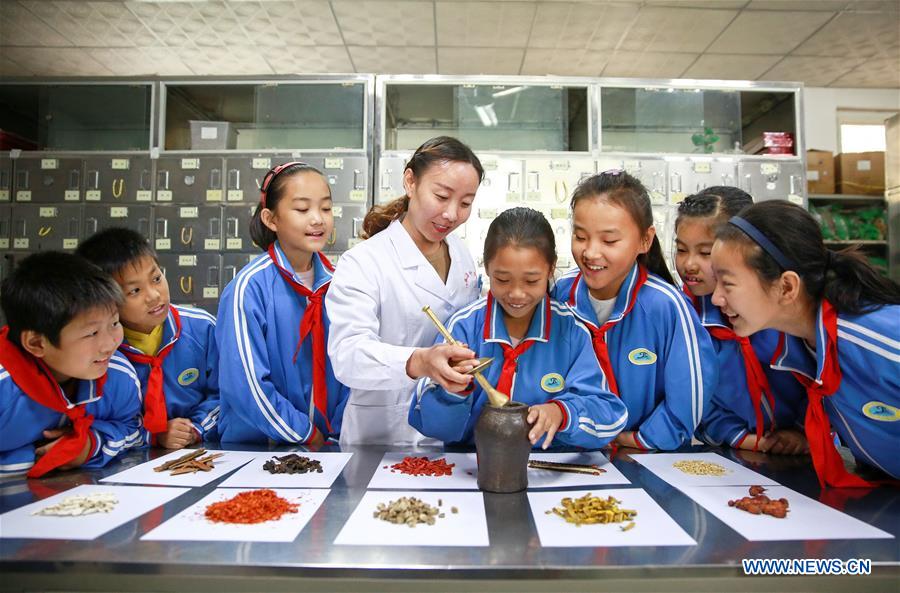
Students experience grinding Chinese herbal medicine at Neiqiu hospital of traditional Chinese medicine in Neiqiu County, north China's Hebei Province, Oct. 21, 2018. China's primary and middle schools have been urged to improve education for all-around student development, according to a directive issued by authorities. Jointly issued by the Ministry of Education and other eight agencies, the circular asked schools to offer courses that are in accord with the national syllabus in terms of their quantity and quality. The enhancement of courses' difficulty levels and speed at random and in disregard of the curriculum is prohibited, according to the circular. Primary and junior middle schools are not allowed to set up any "key class" or classes that consist mainly of students selected for their high academic scores or excellent performance, which usually receive better faculty, equipment or more funds than other classes, it added. Primary schools are also warned not to organize any examinations where the students' results would largely decide what middle schools they can be admitted to. The circular also said first and second graders in primary schools should not be given any written homework, and regarding the daily homework load for third to sixth graders, it should not take more than 60 minutes to finish, and for junior middle school students, not more than 90 minutes.(Xinhua/Mu Yu)
BEIJING, Jan. 1 (Xinhua) -- China's primary and middle schools have been urged to improve education for all-around student development, according to a directive issued by authorities.
Jointly issued by the Ministry of Education and other eight agencies, the circular asked schools to offer courses that are in accord with the national syllabus in terms of their quantity and quality.
The enhancement of courses' difficulty levels and speed at random and in disregard of the curriculum is prohibited, according to the circular.
Primary and junior middle schools are not allowed to set up any "key class" or classes that consist mainly of students selected for their high academic scores or excellent performance, which usually receive better faculty, equipment or more funds than other classes, it added.
Primary schools are also warned not to organize any examinations where the students' results would largely decide what middle schools they can be admitted to.
The circular also said first and second graders in primary schools should not be given any written homework, and regarding the daily homework load for third to sixth graders, it should not take more than 60 minutes to finish, and for junior middle school students, not more than 90 minutes.















